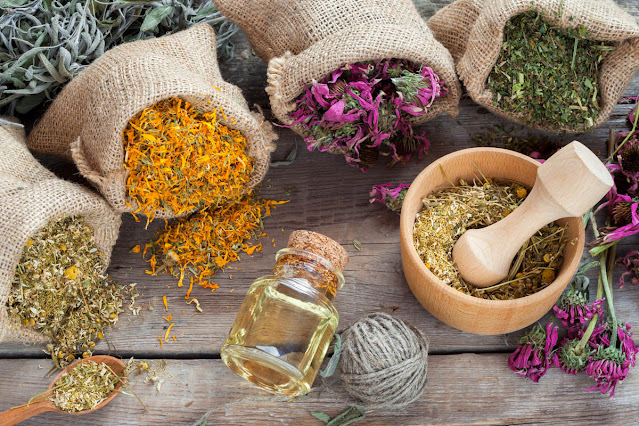Effective Home Remedies for Alleviating Stomach Pain
Introduction: Stomach pain, also known as abdominal pain, can be caused by a variety of factors such as indigestion, gas, bloating, constipation, or minor infections. While severe or chronic stomach pain requires medical attention, mild to moderate discomfort can often be managed with simple home remedies. In this article, we will explore several effective home remedies for alleviating stomach pain and promoting digestive health.
I. Herbal Teas:
- Peppermint Tea: a. Benefits: Peppermint has antispasmodic properties that can help relax the muscles of the gastrointestinal tract, relieving stomach pain and reducing bloating. b. Preparation: Steep 1 teaspoon of dried peppermint leaves in a cup of hot water for 10 minutes. Strain and consume it warm.
- Ginger Tea: a. Benefits: Ginger possesses anti-inflammatory properties and aids digestion, making it effective for soothing stomach pain, reducing nausea, and relieving indigestion. b. Preparation: Add 1 teaspoon of freshly grated ginger to a cup of hot water. Steep for 10 minutes, strain, and enjoy it warm.
- Chamomile Tea: a. Benefits: Chamomile has calming and anti-inflammatory properties that can ease stomach pain, reduce inflammation, and promote relaxation. b. Preparation: Steep 1 chamomile tea bag or 1 tablespoon of dried chamomile flowers in a cup of hot water for 5-10 minutes. Strain and drink it warm.
II. Heat Therapy:
- Hot Water Bottle or Heating Pad: a. Benefits: Applying heat to the abdomen can help relax the muscles, increase blood flow, and alleviate stomach pain caused by cramps or spasms. b. Usage: Place a hot water bottle or heating pad on the affected area for 10-15 minutes at a time. Ensure the temperature is comfortable and not too hot to avoid burns.
III. Dietary Modifications:
- BRAT Diet: a. Benefits: The BRAT diet (bananas, rice, applesauce, and toast) is a bland diet that can help ease stomach pain and provide relief from diarrhea or vomiting. b. Usage: Consume small portions of easily digestible foods from the BRAT diet until the stomach pain subsides. Gradually reintroduce a normal, balanced diet once the symptoms improve.
- Peppermint: a. Benefits: Peppermint can help relax the muscles of the gastrointestinal tract, reduce spasms, and relieve stomach pain. b. Usage: Chew on fresh peppermint leaves, sip peppermint tea, or take enteric-coated peppermint capsules as directed.
- Fennel Seeds: a. Benefits: Fennel seeds contain compounds that can help relax the muscles of the gastrointestinal tract, alleviate gas, bloating, and stomach pain. b. Usage: Chew on a teaspoon of fennel seeds after a meal or steep 1 teaspoon of fennel seeds in a cup of hot water for 10 minutes. Strain and drink gas ka ilaj.
- Ginger: a. Benefits: Ginger aids digestion, reduces inflammation, and can help alleviate stomach pain, bloating, and nausea. b. Usage: Add freshly grated ginger to meals, consume ginger tea, or take ginger capsules as directed.
- Chamomile: a. Benefits: Chamomile possesses anti-inflammatory properties and can help soothe the stomach, reduce inflammation, and relieve stomach pain. b. Usage: Drink chamomile tea as described earlier, or chew on chamomile flowers for relief.
IV. Lifestyle Adjustments:
- Stress Management: a. Benefits: Stress can contribute to stomach pain and digestive discomfort. Managing stress through relaxation techniques, meditation, yoga, or deep breathing exercises can help reduce symptoms. b. Usage: Incorporate stress-reducing activities into your daily routine to promote overall well-being and alleviate stomach pain.
- Regular Exercise: a. Benefits: Engaging in regular physical activity can help promote healthy digestion, prevent constipation, and reduce stomach pain. b. Usage: Incorporate moderate exercise, such as walking or jogging, into your routine. Aim for at least 30 minutes of exercise most days of the week.
- Hydration: a. Benefits: Staying properly hydrated is essential for optimal digestion and can help alleviate stomach pain caused by constipation. b. Usage: Drink an adequate amount of water throughout the day and ensure you are well-hydrated.
V. Probiotics:
- Benefits: Probiotics are beneficial bacteria that can help restore the balance of gut flora, promote healthy digestion, and alleviate stomach pain.
- Usage: Consume probiotic-rich foods like yogurt, kefir, sauerkraut, or take probiotic supplements as directed.
VI. Precautions:
- If stomach pain persists, worsens, or is accompanied by severe symptoms such as fever, vomiting, blood in the stool, or intense abdominal pain, it is essential to seek medical attention promptly.
- It is important to note that home remedies may not be suitable for everyone, especially individuals with underlying medical conditions or allergies. Consulting with a healthcare professional is recommended before trying any pait dard ka ilaj.
Conclusion: While severe or chronic stomach pain requires medical attention, mild to moderate stomach pain can often be relieved with simple home remedies. Herbal teas such as peppermint, ginger, and chamomile can help soothe the stomach and reduce pain. Heat therapy, dietary modifications including the BRAT diet, and the inclusion of ingredients like peppermint, fennel seeds, ginger, and chamomile in meals or teas can also provide relief. Lifestyle adjustments, such as stress management, regular exercise, and adequate hydration, contribute to overall digestive health. Additionally, probiotics can help restore the balance of gut flora. It is important to consult with a healthcare professional if symptoms persist or worsen, to ensure an accurate diagnosis and pait dard ki desi dawa.




Comments
Post a Comment